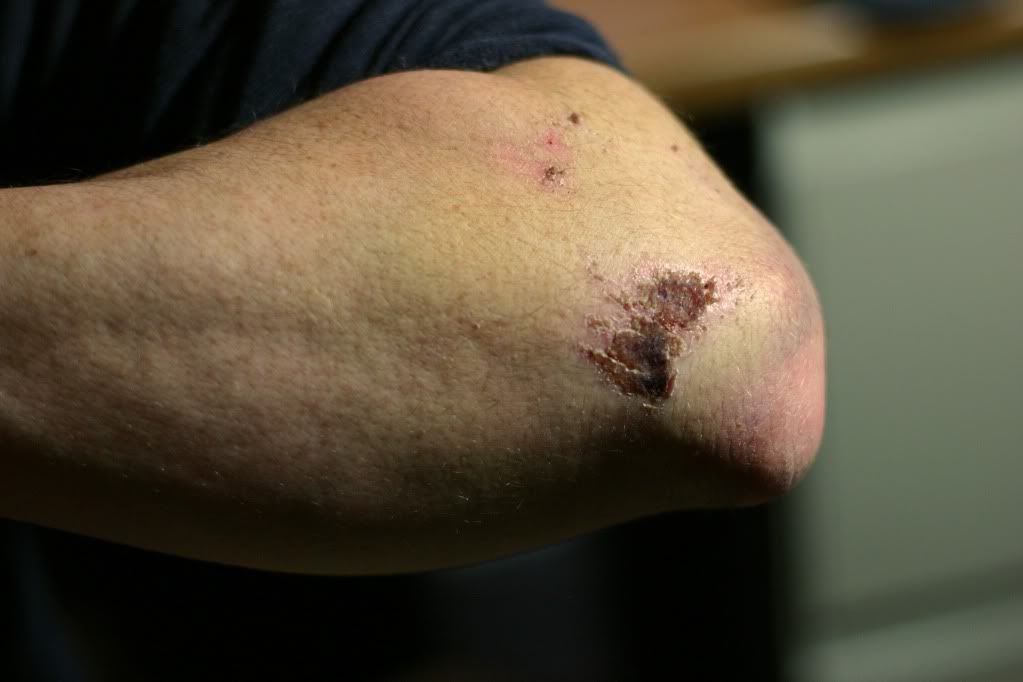Equipment damage:
The crash resulted in a ruined front wheel and a bent right shifter lever. He also tore up his leg warmers, his socks, his shirt, and his bike shorts. This amount of damage is more than typically occurs during an energy crash. (I mean, I can imagine some really complicated scenarios involving his friend Chad where this is not true, but it's probably rare.) Whether the damage is less or more than is incurred during a car accident is less clear. Since Alex became a bike fanatic, I have learned that many bikes are much more expensive than some cars. In this case, however, Alex's bike is not expensive enough (a fact he often reminds me of) to push the cost of repair over the average cost of repair for an automobile.


Bodily harm:
Alex came home with several bruises, some heavy road rash on his hip, a pretty badly gouged elbow (see below--note that I took this picture one week after the incident), and, the most serious injury, a really sore and swollen wrist. This most definitely exceeds the average amount of bodily harm resulting from an energy crash, but might actually be on par with, if not more than that resulting from a car accident. Consider that Alex was traveling at 25 miles an hour. A person involved in a car accident at that speed might get some whiplash or a cut from a broken window, but not much more (on average).


Post-crash mental health:
Alex suffered post-crash depression and anxiety (wow, I should have been a doctor!). For one, the thought of getting back on a bike and riding at 25 miles an hour with less than (sometimes much less than) a foot to spare between himself and 30 other bikers (see photo 1 below) was clearly daunting. I guess we'll find out how well he has recovered when the next race rolls around. Perhaps even more affecting was the disappointment that he didn't get to finish the race because up until the crash, the race was going phenomenally. He had been in a break away for most of the race (see photo 2 below) and was feeling great. When the crash happened, there were only 2 laps left, and he was in position to be in the top 5 finishers! I doubt that the average sufferer of an energy crash is mentally affected for much more than a half hour. A victim of a car accident might be more affected, but especially if the accident is a 25 mph one, it is unlikely to be much more severe than that experienced by Alex.


No comments:
Post a Comment